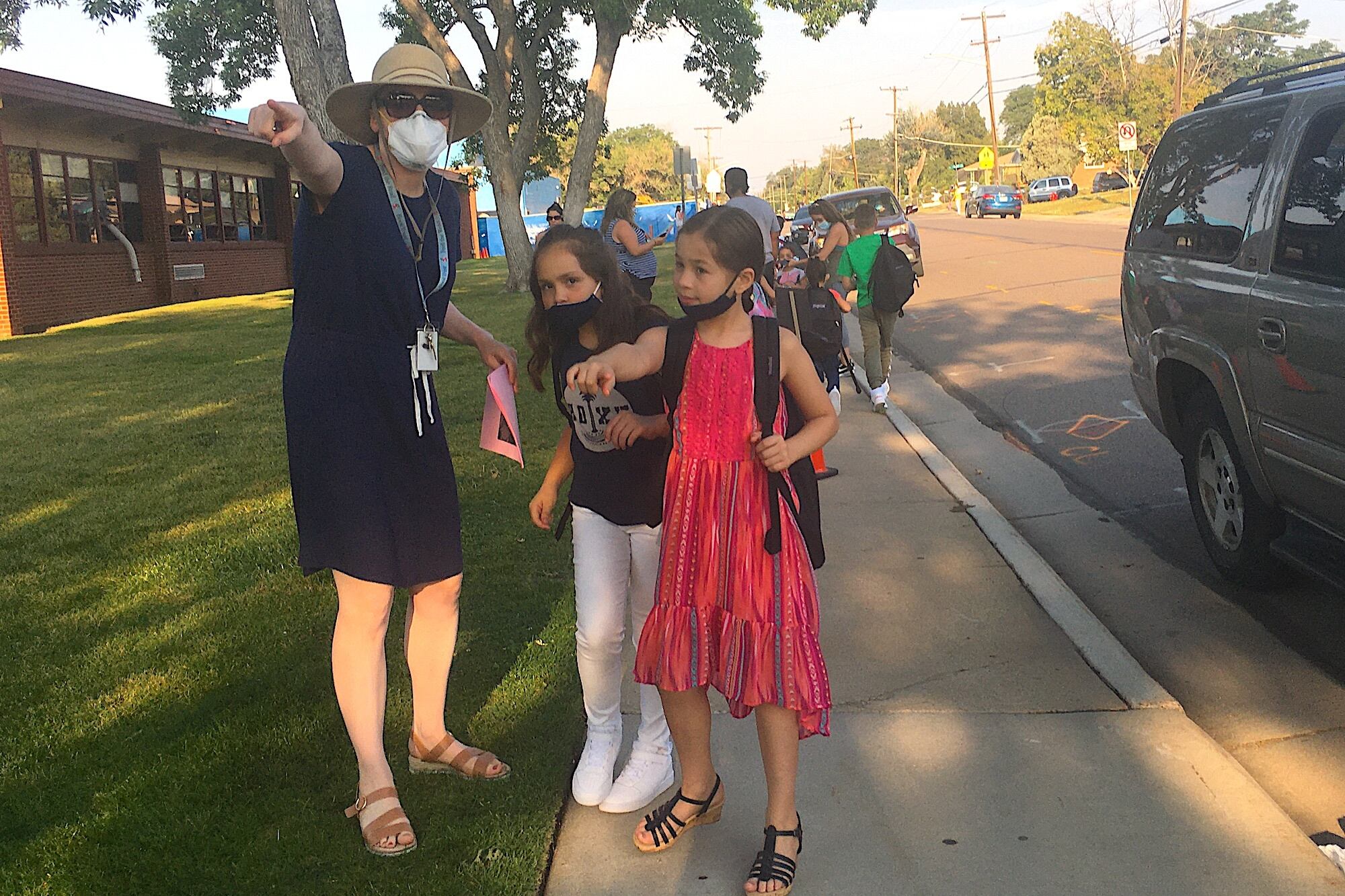Arriving with their parents at Skyline Vista Elementary in the Westminster district just after 8 a.m. Thursday, the King children expressed very different feelings about their first day of in-person school in more than five months.
Brayla, a first-grader wearing a fuchsia dress and carrying a pink cat backpack, gave two thumbs up when asked how she felt about starting the year. But her older brother Harizen, a fourth-grader, had a bad case of first-day jitters.
“I’m tired first of all. My stomach was hurting and also — Oh, I’m feeling better now,” he said. “Also, I’m just nervous.”
He was most worried about meeting his teacher.
“I don’t know which one it’s going to be,” he said.
The siblings were two of 164 first- through sixth-graders who started the year at Skyline Vista Thursday. Another 60 students, including their younger sister Reya, will join them Monday when preschool and kindergarten classes begin.
Westminster Public Schools, a 9,000-student district where about 80% of students qualify for federally subsidized meals, was one of the first in Colorado to commit to full-time in-person learning for families who wanted it, announcing the decision in early June. A few other metro Denver districts, including Cherry Creek, Douglas County, and Sheridan, began to bring students back this week, but many nearby districts will start remotely next week, with some keeping students home until at least mid-October.
Plenty was familiar about Thursday’s back-to-school experience at Skyline Vista: The sunny August morning, the new sneakers and backpacks, and the smiling-but-slightly-apprehensive parents.
But the pandemic-era differences were there, too. Blue-and-green signs reminded kids of the three W’s: “Wash your hands,” “Wear a mask,” and “Watch your distance.” Staff members with clipboards fanned out across the campus to help children find grade-level specific entrances and when the school bus arrived it held only a fraction of its usual load in accordance with health guidelines.
When drop-off ended about 8:15 a.m. school leaders were relieved. Things had gone smoothly. No major meltdowns, minimal confusion.
Of course, there are still some snarls to work out. Skyline Vista staff will need to track down about 50 students who signed up for in-person learning but didn’t turn up as expected. Some families likely changed their minds about in-person learning while others may not have realized the first day of school was Thursday.
District officials said they expect more than two-thirds of students districtwide to choose in-person learning, but won’t have hard numbers for a few weeks.
Janet Blanco, who lingered on the Skyline Vista lawn with her kindergartener Karla on Thursday morning, was happy her family has the option.
“I’m feeling pretty good,” she said with a laugh after her fourth- and sixth-grade daughters headed to their classrooms.
Blanco’s not nervous about her girls catching COVID-19 and appreciates the precautions the school is taking, including keeping parents outside the building.
Plus, last spring’s remote learning experience was rocky.
“I didn’t understand the program they had to be on … where they had to go and where they had to turn in their work and all that,” she said. ”So that was hard for me.”
Brittany Williams — Brayla, Harizen, and Reya’s mother — also described remote learning as rough.
And although she’s a little nervous about the health risks this year, she said, “I’m going to see how it goes and how things play out, and we’ll just take it day by day.”






